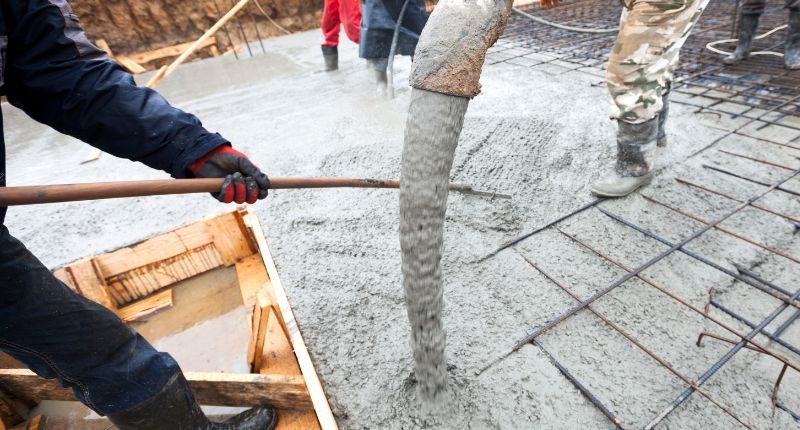What is concrete?
Concrete is a man-made material regularly used in construction. It is conceived by combining cement, sand, gravel, water and occasionally other ingredients.
Concrete becomes exceptionally durable through a chemical process known as hydration. This allows it to be used for road surfaces, bridges, decks, dams and other building structures.
How much does concrete cost?
In Australia, expect to pay around $50 to $75 per square metre for spray-on concrete, with plain concrete costing $60 to $85. Coloured concrete costs marginally more, $75 to $90, with $100 to $150 for decorative stencilled finish or a more exposed aggregate.
It should be noted, however, that a range of factors can influence the cost of concreting. This can include but is certainly not limited to, the quality of aggregate used in the mix, age and size of job, and whether you need a large mixing concrete pump, if a local one-off supplier.
George Alexopoulis, the owner of JGA Concreting in Darwin – which has over 45 years of experience in the industry – gave The Property Tribune a list of the five biggest factors one needs to take into account when concreting.
What are the five top factors someone should take into account when concreting?
- Weather conditions
- Safety
- Proper engineering, drawings and specifications
- Compliance with local regulations
- Quality of materials, personnel and work
How much does concreting cost per square metre?
Although labour rates vary significantly throughout Australia, especially given ongoing labour shortages, concreters typically charge around $67.50 per hour. Concreters use equipment that speeds up the process, which can help keep the cost per sqm down.
A labourer who has recently finished their trade and is starting out in the sector would typically charge a rate of $40 per hour.
Concretors who have been in the industry for one to five years and have established clientele would be more likely to charge in the vicinity of $40 to $70 per hour.
While obviously higher than the lower end, it is likely these concreters have a level of workmanship and can complete work more efficiently.
Above $70 per hour would be considered the higher-end. A premium service would be expected, with a strong clientele to back them.
When hiring a concreter, it is important to ask them a range of questions, to make sure they are a right fit for the job.
Questions can include if they are licenced appropriately – note, this can vary from state to state – do they have valid insurance, can the quote be in writing and if there are references they can follow up.
All states/territories except for the NT and Tasmania require concreters to have a dedicated concreting or builders licence.
Typically, three quotes from a qualified practitioner is the way to go.
What jobs do concreters do?

Concreters are equipped with a range of skills and services. This includes mixing and laying concrete, concrete cutting, reinforcing concrete to stregnthen it, laying house foundations, cleaning dirty concrete, pouring concrete into formwork, grinding and polishing concrete services, and creating different decorative effects with stencils and stamps.
Many concreters nowadays have an online presence, including social media, which would have a gallery of projects. For more complex projects, this can show the style of projects they are familiar with.
Nowadays, concreters are specialising in more fields than in the past. This means you are likely to get more competitive quotes from specialists. Specialists are almost more likely to have the right equipment for their speciality, saving you extra for equipment that you don’t need on your job.
Some concreters specialise in pouring slabs and other major jobs. They are trained to deliver concrete using larger trucks and concrete pumps efficiently and cost-effectively. These specialists may not necessarily be the best if you wish to have your driveway resurfaced with a decorative finish for example.








